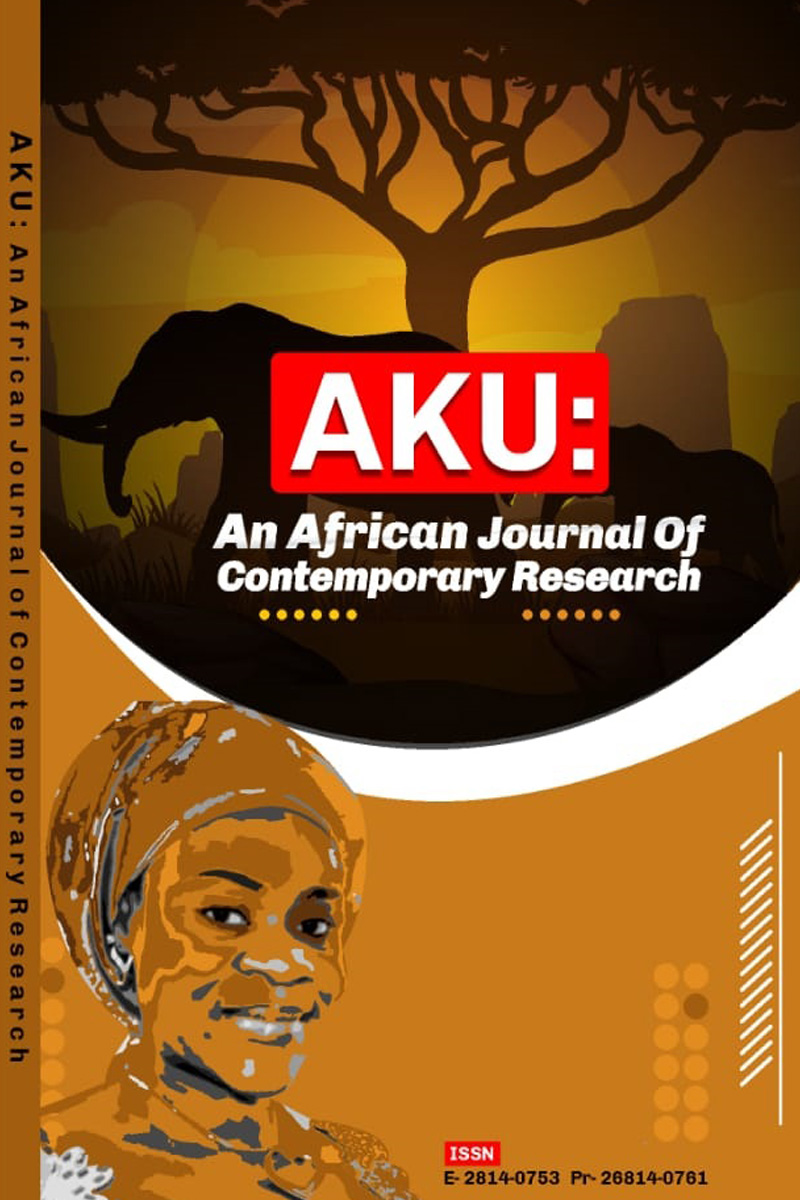 AKU - An African Journal of Contemporary Research (AAJCR) (Vol. 3 No. 2, 2022)
REASONABILITY AS A STANDARD FOR ASSESSING THE AUTHENTICITY OF COMMUNALISM AS AFRICAN NATURE
AKU - An African Journal of Contemporary Research (AAJCR) (Vol. 3 No. 2, 2022)
REASONABILITY AS A STANDARD FOR ASSESSING THE AUTHENTICITY OF COMMUNALISM AS AFRICAN NATURE
ABSTRACT
This paper examines the basic presupposition in African philosophy that communitarian life is intrinsic to Africans. Most contemporary African philosophers have held tenaciously for long that communalism is a distinctive African mode of being and is aimed at human welfare and the common good. The frameworks of African communalism they have advanced and propagated find expression in communal values such as love, kindness, sharing, altruism, tolerance, complementarity, harmony, solidarity, integrity, and justice. However, the character (nature) of some African beings in a chain of interlinking forces as well as some circumstances (structures – laws, conventions, standards, protocol, and institutions – and socio-cultural pressures and practices) are not consistent with the essence of African communalism in terms of radii of reasonability (consistency-beneficence) manifested therein. We expose some particularistic religious ethics and ideologies that play out in indigenous African religious and socio-cultural practices, and argue that such ethics and ideologies are devoid of reasonability and thus are not universalizable. We demonstrate that traditional African society has some strains of universalistic and reasonabilistic philosophy and ethics, at least in principle, which should be leveraged on to develop authentic African communalism in practice. Finally, we posit that this can be achieved through signification-concretization processes.

